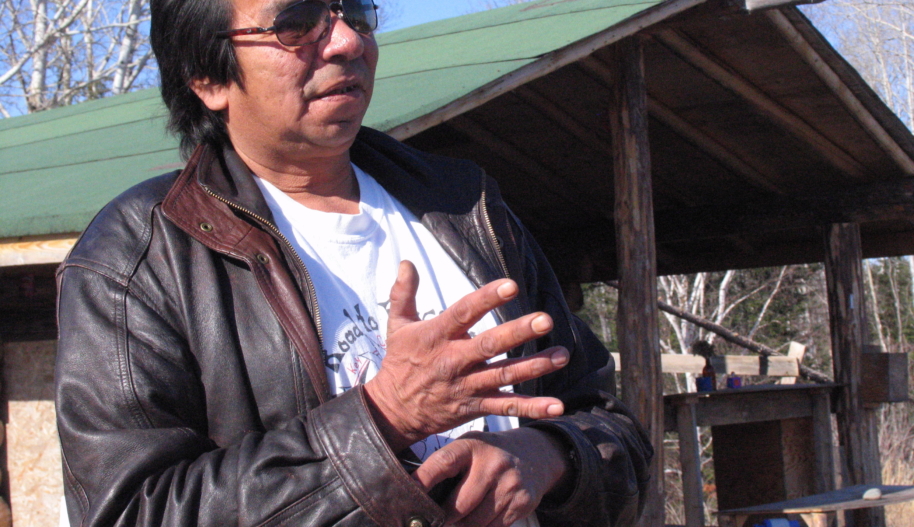“Steve always wanted the government to admit that he had been poisoned by mercury. Now we take up his fight to honour him.” – the family of Steve Fobister, Sr.
Steve Fobister Sr. was a powerful and inspirational voice in the long struggle for justice for his community, the Grassy Narrows First Nation in northwestern Ontario. Mr. Fobister passed away on October 11 after many years of debilitating illness resulting from mercury poisoning.
“Decades of government obstruction denied Steve Fobister the chance to see justice in his lifetime,” said Amnesty International Canada’s Secretary General Alex Neve. “We must, all of us, continue his struggle to ensure that all the members of his community receive full and fair compensation for the poisoning of their waters and access to the quality, specialized health care required by those suffering the devasting impacts of Minamata disease.”
Steve Fobister was a former Chief of the Grassy Narrows First Nation and Grand Chief of Treaty 3. He was one of the first members of the Grassy Narrows First Nation to approach Amnesty International about the human rights violations resulting from the contamination of their waters and destruction of their forests.
Craig Benjamin, Amnesty International Canada’s campaigner for the rights of Indigenous peoples said, “Steve’s passion and commitment left an indelible impression on all of us fortunate enough to have met him. But we will remember him best by supporting the struggle that he began. I strongly echo the demands of Steve’s grieving family to acknowledge the truth of his mercury poisoning and foster reconciliation by compensating everyone in Grassy Narrows. Anything less would amount to a betrayal and failure of basic human decency.”
The provincial government allowed an upstream pulp mill to dump mercury into the English and Wabigoon river system in the 1960s. Steve, who worked as a fishing guide as a young man, was among those most severely affected by the accumulation of mercury in the fish which are a dietary staple for Grassy Narrows.
Alex Neve said, “The provincial government bears direct responsibility for allowing mercury to be dumped into the Grassy Narrows river system in the first place. Both the federal and provincial governments bear responsibility for decades of failure to acknowledge and address the resulting health crisis. They must finally take real and meaningful action so that all people suffering the tragic impacts of the ongoing mercury crisis can finally receive the care and support they need and deserve.”













